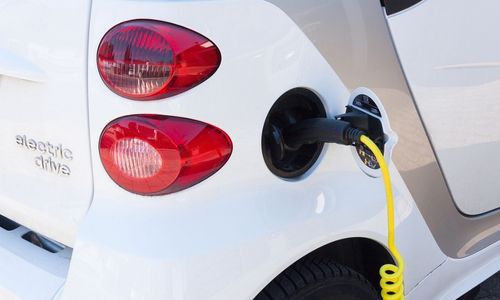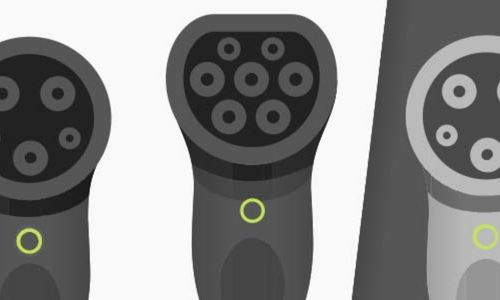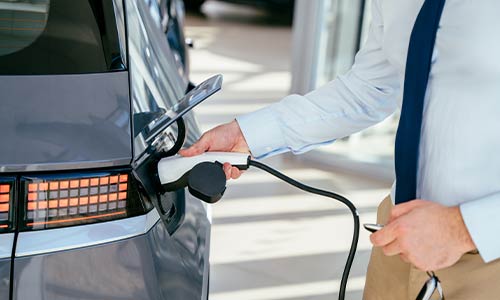
How long does it take to charge an electric car?
Last updated December 1st, 2023
When deciding whether to buy an electric car, charging time is a major consideration.
Electric cars are certainly more economical to run than their combustion engine counterparts. However, EV owners often have to wait for their vehicle to charge before they can use it, whilst you can fill up a petrol or diesel car and drive away with a full tank in just a few minutes.
Although public EV charging infrastructure has significantly improved in recent years, even the latest ultra-rapid DC chargers typically take around 20-30 minutes to charge to full capacity.
In this guide, we’ll explain the charging times for various EV chargers, how to achieve a faster charge – and the various factors that can influence charging duration.
Value your car in under 30 seconds
How long does it take to charge an electric car at home?
Charging times for home EV chargers vary greatly (from as little as 45 minutes, through to 12 hours). The more common 7kW models typically take around 4-8 hours to deliver a full charge. However, the older 3-pin plug chargers are slower and may take around 12 hours.
How long does it take to charge an electric car at a public charging point?
Just as with home EV chargers, the timeframe for reaching a full charge at a public charging point will depend on the charger’s power and your car’s battery speed.
The fastest ultra-rapid DC chargers can often complete a full charge within 20-30 minutes – even for EVs with large batteries. These charge points are typically installed at supermarkets, shopping centres, service stations and other public amenities.
Charging your EV at a public charging point typically costs more than using a home charger. (You’re paying extra for the convenience of charging your EV whilst on the go.)
There are also public charge points affixed to lampposts. Some are free to use, however, these chargers typically take longer to complete a full charge (sometimes up to 10 hours), meaning they’re not a great option if you’re in a hurry.
What about rapid electric car chargers?
Ultra-rapid DC chargers are currently the fastest public EV chargers in the UK (providing power at a rate of 100kW per hour or more).
The fastest rapid chargers (which are found at public charging stations) use high-power DC charging and operate at higher voltages and currents than home-use models (up to around 350kW per hour). Faster public chargers can reliably deliver a full charge within 20-30 minutes (even for newer, larger capacity EVs).
Electric car charging speed examples
Here are a few examples of charging speeds for some of the most popular EVs on the market:
Nissan LEAF (2018)
Maximum distance before recharging: 143 miles.
Charging time:
- 11 hours (with a slow 3.7kW charger).
- 6 hours (with a fast 7kW or 22kW charger).
- 1 hour (with a 43-50kW rapid charger).
Tesla Model S (2019)
Maximum distance before recharging: 238 miles.
Charging time:
- 21 hours (with a slow 3.7kW charger).
- 11 hours (with a fast 7kW charger).
- Under 1 hour (with a 150kW charger).
Mitsubishi Outlander Plug-in Hybrid (2019)
Maximum distance before recharging: 24 miles.
Charging time:
- 4 hours (with 3.7, 7 or 22kW charger).
- 43 minutes (with a 43-50kW rapid charger).
How do you make an electric car charge faster?
-
Maintain an optimal battery temperature
If the battery is too cold, it will take longer to charge. You can preheat your battery to warm it up prior to charging. A Battery Thermal Management System (BTMS) will also help to cool it down before charging during the warmer months.
-
Don’t let your battery run empty
Charging from near empty will take longer. For optimal charging, keep your battery above 20% at all times.
-
Choose an ultra-fast EV charge point for the fastest possible charge.
What affects electric car charging speed?
-
Battery size
A battery with a larger capacity may take longer to charge.
-
State of battery
Charging from empty takes longer than charging from 20% or more.
-
Charging rate of vehicle
Your vehicle can’t charge past its maximum capacity rate, so a slower capacity rate means your vehicle will take longer to charge.
-
Max charging rate of charge point
The maximum charging rate of the charge point will determine how quickly your vehicle charges.
-
Environmental factors
Cold weather can make EV charging less efficient, so fewer miles are added per charge (and it will take longer to charge too).





